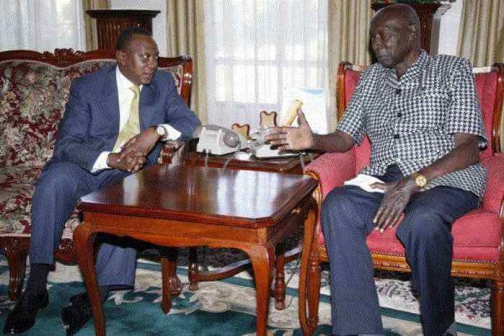×
The Standard e-Paper
Stay Informed, Even Offline

The story of Uhuru Kenyatta’s rise to power is one of pragmatic political betrayal, complete with casualties, favours from political godfathers, the advantage of a popular family name and the wherewithal required to marshal a presidential campaign.